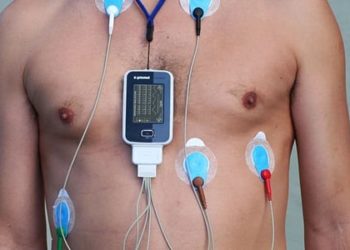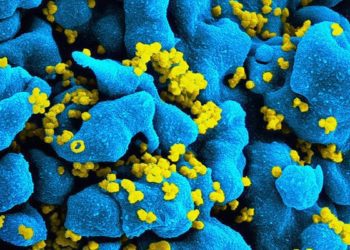Liberal transfusion may improve outcomes in myocardial infarction and anemia
1. In this secondary analysis of the MINT trial, 30-day risks for the composite outcome of death and recurrent myocardial infarction increased with lower hemoglobin thresholds for transfusion among patients with acute myocardial infarction.
2. Given the imprecision of the trial data, definitive conclusions regarding hemoglobin thresholds for transfusion remain uncertain.
Evidence Rating Level: 2 (Good)
Study Rundown: A high prevalence of anemia exists in patients presenting with acute myocardial infarction (MI). The optimal thresholds for red blood cell transfusion in such patients are uncertain given insufficient evidence, especially from randomized controlled trials. While blood transfusion can improve oxygenation to myocardial tissue and reduce the extent of ischemic damage, it can also induce circulatory overload, precipitate immune reactions, and increase risk of infection. A recent phase III trial called Myocardial Ischemia and Transfusion (MINT) suggested that a restrictive hemoglobin threshold transfusion strategy may lead to increased incidence of recurrent MI or all-cause mortality, although the results were not significant. This trial, a prespecified secondary analysis of the MINT trial, aimed to evaluate the effects of 4 individual hemoglobin thresholds (<10 grams/deciliter [g/dL], <9 g/dL, <8 g/dL, and <7 g/dL) on the composite risk of recurrent MI or death. Overall, it was found that 30-day risks for the aforementioned composite outcome among patients with acute MI and anemia increased progressively with lower hemoglobin concentration thresholds for transfusion. However, the data were somewhat imprecise, precluding definitive conclusions regarding target hemoglobin thresholds for blood transfusion in these patients. In addition to the wide confidence intervals, the trial was limited by missing data and unmeasured confounding variables from the original MINT study. Nonetheless, these results suggest that more restrictive transfusion thresholds may be associated with greater harm among patients with acute MI.
Click to read the study in AIM
Relevant Reading: Restrictive or liberal transfusion strategy in myocardial infarction and anemia
In-Depth [retrospective cohort]: This hypothetical target trial investigated the effects of 4 individual hemoglobin concentration thresholds for transfusion in patients with acute MI and anemia who were originally enrolled in the MINT trial. Included individuals were 18 years of age or older with type 1, 2, 4b or 4c MI as well as a hemoglobin concentration below 10 g/dL at index hospitalization. The primary outcome was defined as the composite of recurrent MI or all-cause death within 30 days. The secondary outcome was all-cause death alone. Each patient was “assigned” to all 4 transfusion strategies (hemoglobin levels <10 g/dL, <9 g/dL, <8 g/dL, and <7 g/dL) by creating 4 copies of relevant data from the MINT trial. Each transfusion strategy specified that, unless otherwise indicated, a red blood cell transfusion was to be given within 24 hours each time a hemoglobin measurement less than the target threshold was obtained, and that no transfusion would be given if the measurement was at or above the target. Every 4 hours, participants were censored if they deviated from their assigned strategy. Patients were followed until discharge from hospital or day 30, whichever occurred first. Of 3504 patients in the MINT trial, 3492 were included in this analysis. The mean age of the participants was 72 years, and the baseline hemoglobin concentration was 8.6 g/dL. The estimated 30-day risk for recurrent MI or death was 14.8% (95% Confidence Interval [CI], 11.8% to 18.4%) for the <10-g/dL strategy, 15.1% (95% CI, 11.7% to 18.2%) for the <9-g/dL strategy, 15.9% (95% CI, 12.4% to 19.0%) for the <8-g/dL strategy, and 18.3% (95% CI, 14.6% to 22.0%) for the <7-g/dL strategy. Results for the secondary outcome were similar, although there was no difference between the <10-g/dL and <9-g/dL strategies. In summary, this hypothetical target trial demonstrated that 30-day risks for recurrent MI and death appear to increase with lower hemoglobin thresholds for transfusion in patients with acute MI and anemia.
Image: PD
©2024 2 Minute Medicine, Inc. All rights reserved. No works may be reproduced without expressed written consent from 2 Minute Medicine, Inc. Inquire about licensing here. No article should be construed as medical advice and is not intended as such by the authors or by 2 Minute Medicine, Inc.







